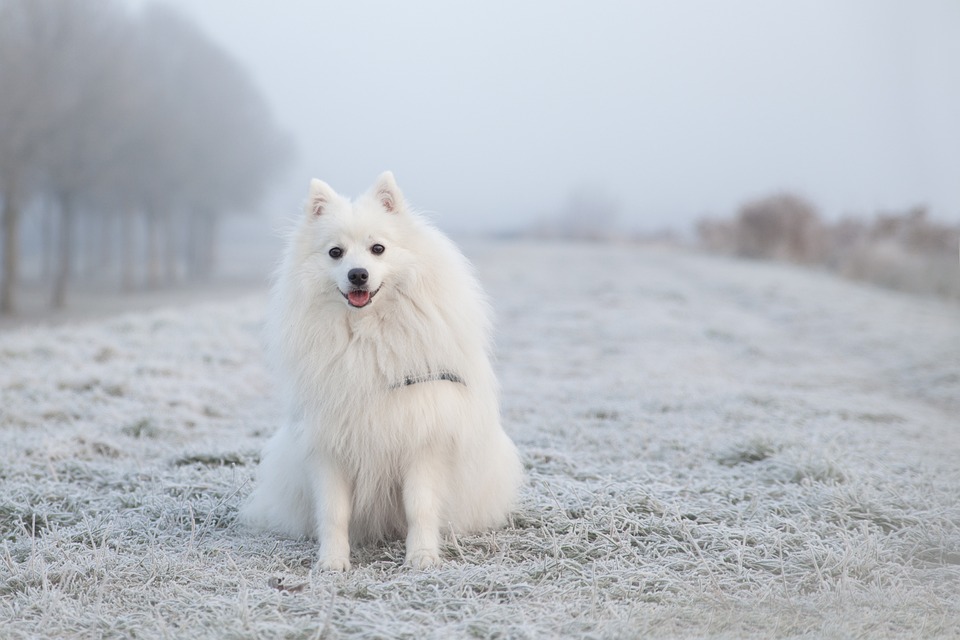As our furry friends age, it becomes increasingly important to create a safe and enriching indoor environment that caters to their specific needs. Senior dogs may experience various health issues and physical limitations, but with a few adjustments, you can ensure their comfort and happiness within the confines of your home.
1. Create a Senior-Friendly Space
– Evaluate and Modify the Layout: Take a close look at your home’s layout and identify potential hazards or obstacles that could pose a risk to your senior dog. Remove or secure any loose rugs, furniture with sharp corners, or objects that could be tripping hazards.
– Provide Easy Access: Older dogs may struggle with mobility, so make sure your home is easily accessible for them. Install ramps or pet stairs to aid them in reaching higher surfaces such as beds or couches. Consider placing their food and water bowls at a comfortable height to prevent strain.
– Designate a Quiet Area: Create a designated quiet and comfortable space where your senior dog can retreat to relax and have some alone time. This area should be free from excessive noise, foot traffic, and other pets, allowing your senior dog to rest peacefully.
2. Ensure a Safe Environment
– Remove Toxic Substances: Senior dogs may have weakened immune systems, making them more susceptible to the harmful effects of certain substances. Remove hazardous chemicals, such as cleaning products, pesticides, and toxic plants from your home. Ensure medications are stored securely, out of your dog’s reach.
– Prevent Falls: Senior dogs are prone to falls and injuries. Use baby gates to block access to staircases or other areas where your dog may be at risk of falling. Place non-slip mats or rugs on slippery surfaces to provide traction and stability.
– Maintain a Comfortable Temperature: Older dogs are more sensitive to temperature extremes. Ensure your home is kept at a comfortable temperature year-round, avoiding excessively hot or cold environments. Consider providing extra bedding or a heated pet pad during colder months.
3. Engage in Enrichment Activities
– Provide Mental Stimulation: Keep your senior dog’s mind sharp by engaging in mentally stimulating activities. Puzzle toys, treat-dispensing toys, and interactive games can provide mental challenges and prevent cognitive decline.
– Offer Gentle Exercise: While senior dogs may not have the same energy levels as when they were younger, regular gentle exercise is still crucial for their overall well-being. Short walks, slow play sessions, and low-impact exercises tailored to their abilities can help maintain their muscle tone and joint flexibility.
– Keep Them Social: Seniors dogs still crave social interaction. Arrange playdates with other friendly and compatible dogs or consider enrolling them in a senior doggy daycare program. Regular socialization can prevent loneliness and depression.
FAQs about Providing a Safe and Enriching Indoor Environment for Senior Dogs
Q1: How can I make my home safer for my senior dog?
A1: Evaluate your home’s layout, remove potential hazards, provide easy access with ramps or stairs, and create a designated quiet area for your senior dog to relax.
Q2: Are there any household items that could be toxic to my senior dog?
A2: Yes, certain cleaning products, pesticides, toxic plants, and medications can be harmful to senior dogs. Ensure these substances are stored securely and out of your dog’s reach.
Q3: How can I mentally stimulate my senior dog indoors?
A3: Puzzle toys, treat-dispensing toys, and interactive games can provide mental stimulation. Rotate toys regularly to keep them engaged.
Q4: What kind of exercise is appropriate for senior dogs?
A4: Gentle exercises such as short walks, slow play sessions, and low-impact activities tailored to their abilities are ideal for senior dogs. Always consult with your veterinarian for specific exercise recommendations based on your dog’s health condition.
Q5: Why is socialization important for senior dogs?
A5: Regular socialization with other dogs or humans can prevent loneliness and depression in senior dogs. It also provides mental stimulation and helps maintain their social skills.
By following these tips and creating a safe and enriching indoor environment, you can ensure that your senior dog enjoys a comfortable and fulfilling life within your home. Remember, consulting with your veterinarian for personalized advice is essential to cater to your senior dog’s specific needs.









